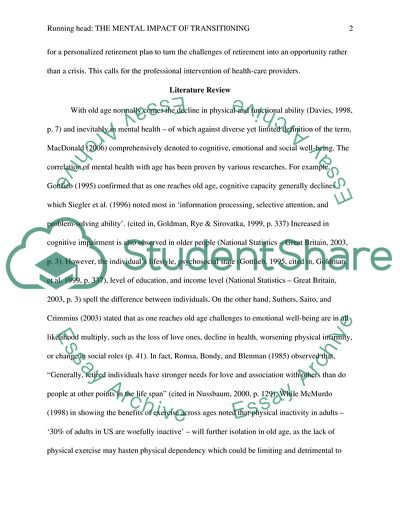Cite this document
(The Mental Impact of Transitioning from Working to Retirement Research Proposal - 1, n.d.)
The Mental Impact of Transitioning from Working to Retirement Research Proposal - 1. https://studentshare.org/psychology/1748989-the-mental-impact-of-transitioning-from-working-to-retirement
The Mental Impact of Transitioning from Working to Retirement Research Proposal - 1. https://studentshare.org/psychology/1748989-the-mental-impact-of-transitioning-from-working-to-retirement
(The Mental Impact of Transitioning from Working to Retirement Research Proposal - 1)
The Mental Impact of Transitioning from Working to Retirement Research Proposal - 1. https://studentshare.org/psychology/1748989-the-mental-impact-of-transitioning-from-working-to-retirement.
The Mental Impact of Transitioning from Working to Retirement Research Proposal - 1. https://studentshare.org/psychology/1748989-the-mental-impact-of-transitioning-from-working-to-retirement.
“The Mental Impact of Transitioning from Working to Retirement Research Proposal - 1”. https://studentshare.org/psychology/1748989-the-mental-impact-of-transitioning-from-working-to-retirement.


